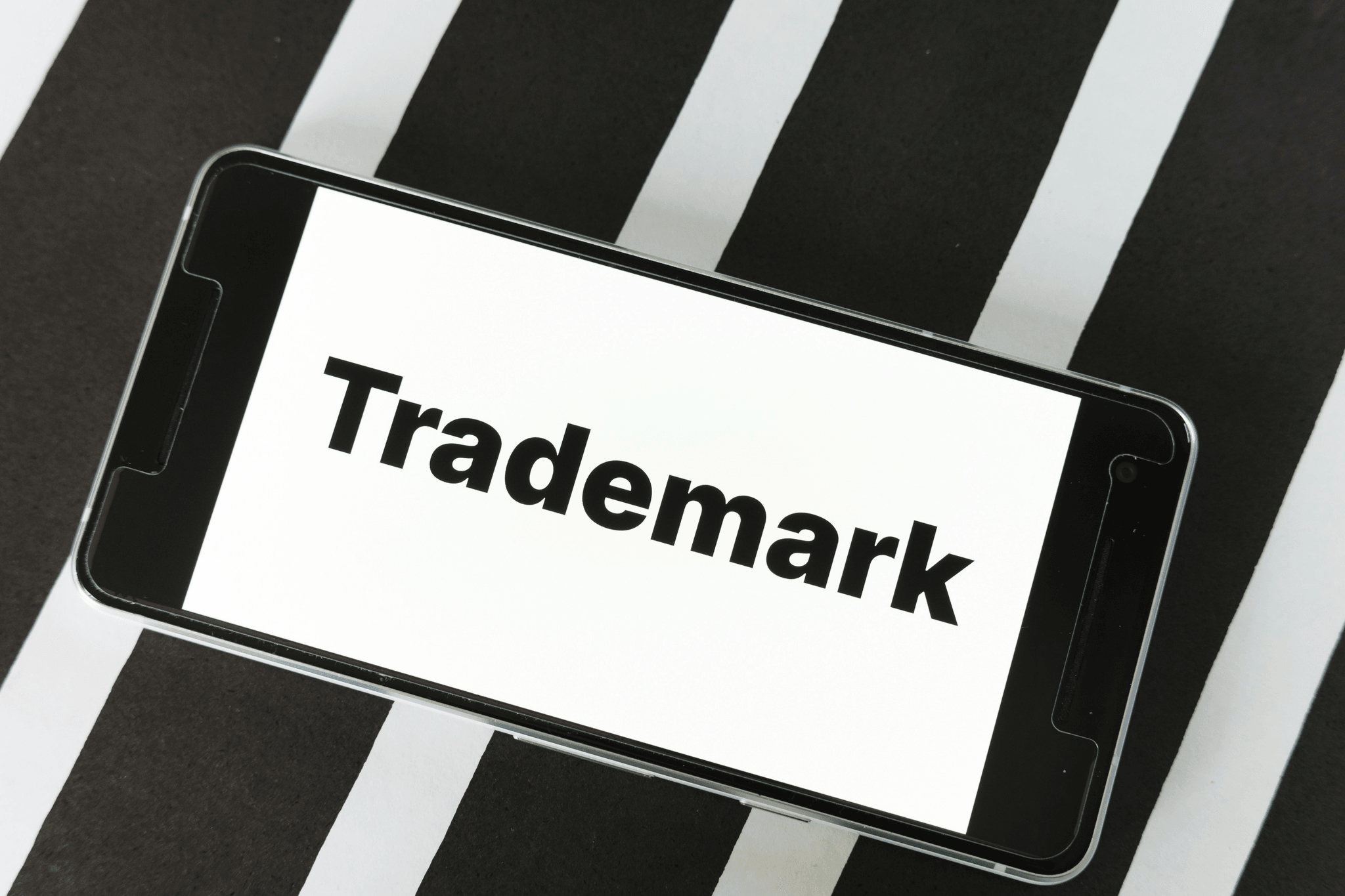Introduction

Navigating the complex landscape of business transactions in China requires a thorough understanding of legal due diligence. In this context, a red flag report due diligence serves as a crucial tool for identifying potential risks and issues that could derail an investment or partnership. By recognizing these pitfalls early on, businesses can make informed decisions and avoid costly mistakes.
Understanding Legal Due Diligence in China
Legal due diligence in China is the process of investigating and evaluating a company's legal standing, compliance with regulations, and overall operational integrity before entering into any business agreement. This process is particularly vital given China's unique regulatory environment and rapidly evolving market conditions. Understanding what constitutes effective due diligence in China can significantly impact the success of foreign investments.
Importance of Identifying Red Flags
Identifying red flags during the due diligence process is essential for mitigating risks associated with business operations in China. Red flags can indicate underlying problems such as financial irregularities, legal compliance issues, or corporate governance concerns that may not be immediately visible. By recognizing these warning signs early on, companies can take proactive measures to protect their interests and ensure smoother transactions.
Overview of Common Key Red Flags
Common key red flags in Chinese legal due diligence include unusual financial statements, discrepancies in ownership structures, and potential intellectual property risks. These indicators signal areas where further investigation is warranted to avoid future complications or liabilities. Understanding these common key red flags is crucial for anyone looking to conduct effective due diligence in China.
Defining Red Flags in Due Diligence

In the realm of legal due diligence, particularly in China, identifying red flags is crucial for safeguarding investments and ensuring compliance with local regulations. A red flag report due diligence serves as a warning system that highlights potential risks or irregularities that could affect a transaction's viability. Understanding how to conduct due diligence in China effectively means recognizing these common key red flags early on to mitigate risks before they escalate.
What is a Red Flag Report in Due Diligence?
A red flag report in due diligence is essentially a document that outlines potential issues or concerns discovered during the investigation process. This report acts as an early warning sign, alerting stakeholders to areas requiring further scrutiny or immediate action. By compiling these findings into a cohesive report, businesses can make informed decisions and avoid costly pitfalls down the line.
The importance of this report cannot be overstated; it serves not just as an inventory of issues but also as a strategic tool for negotiation and risk management. When parties are aware of existing problems, they can address them proactively, whether through renegotiation of terms or increased scrutiny during the transaction process. Thus, understanding what constitutes a red flag report in due diligence is essential for anyone navigating the complex landscape of Chinese business law.
Key Elements of Due Diligence in China
Conducting due diligence in China involves several key elements that are unique to its regulatory environment and business practices. First among these elements is understanding local laws and regulations which can often be intricate and subject to change—making it imperative to stay updated on any developments that may affect your dealings. Additionally, financial records must be meticulously examined for inconsistencies or anomalies that could indicate deeper issues within the organization.
Another critical component includes assessing corporate governance structures and ownership transparency; hidden ownership changes can lead to significant complications if not identified early on. Furthermore, intellectual property rights must be evaluated thoroughly since violations can result in severe penalties under Chinese law—making this another area where common key red flags often emerge during investigations. By focusing on these elements, businesses can create a comprehensive framework for their due diligence efforts.
The Role of AC&E in Identifying Red Flags
AC&E plays an instrumental role in identifying red flags during legal due diligence processes by leveraging its extensive knowledge of both local laws and international best practices. Their expertise allows them to navigate the complexities associated with conducting due diligence in China effectively while pinpointing potential risks specific to various industries and market segments. With AC&E’s guidance, organizations gain access to tailored strategies designed specifically for mitigating risks associated with common key red flags prevalent within Chinese legal frameworks.
Financial Irregularities and Anomalies

In the realm of due diligence in China, financial irregularities can serve as glaring red flags that warrant immediate attention. These anomalies not only raise questions about a company's financial health but can also indicate deeper issues within its operations or management. Understanding how to spot these unusual patterns is crucial for anyone conducting a thorough red flag report due diligence.
Spotting Unusual Financial Statements
When reviewing financial statements, look for inconsistencies that deviate from industry norms or previous performance. Unexplained spikes in revenue, sudden drops in expenses, or discrepancies between cash flow and net income are all signs that something might be amiss. In the context of a red flag report due diligence, these unusual financial statements can signal potential fraud or mismanagement, making it essential to scrutinize them closely.
Moreover, understanding the accounting practices prevalent in China is vital when assessing these documents. Different cultural approaches to accounting may lead to variances that could easily be misconstrued as red flags when they are not. Therefore, having local expertise during your due diligence process can help differentiate between genuine concerns and typical business practices.
The Importance of Audits in Due Diligence
Audits play a pivotal role in ensuring transparency and accuracy during the due diligence process in China. They provide an independent assessment of a company’s financial health and compliance with regulations, which is particularly important given China's complex legal landscape. A comprehensive audit can uncover discrepancies that might otherwise go unnoticed and contribute significantly to your red flag report due diligence.
Furthermore, regular audits help establish credibility with stakeholders by demonstrating a commitment to sound financial practices. This is especially crucial when entering partnerships or investments where trust is paramount. Ultimately, incorporating thorough audits into your strategy on how do you conduct due diligence in China will bolster your findings and mitigate risks associated with financial irregularities.
Examples of Financial Red Flags
Several common key red flags in Chinese legal due diligence may surface during your examination of financial records. For instance, if you encounter frequent changes in accounting policies without clear justification, this could indicate attempts to manipulate earnings or hide losses. Similarly, overly aggressive revenue recognition methods—such as booking sales before goods are delivered—should raise alarms during your review.
Another notable example includes unusually high levels of debt compared to industry peers; this could suggest cash flow problems that might jeopardize future operations. Additionally, related-party transactions should be scrutinized closely; they often present opportunities for conflicts of interest or hidden liabilities that could impact the overall valuation significantly. By identifying these examples early on through diligent analysis, you enhance the robustness of your red flag report due diligence while safeguarding against potential pitfalls.
Legal Compliance Issues

Navigating the legal landscape in China can feel like walking a tightrope, especially for foreign investors. Understanding the regulatory frameworks is crucial to ensure compliance and avoid pitfalls that could derail your business plans. A red flag report in due diligence can be an invaluable tool in identifying potential legal issues before they become costly problems.
Understanding Regulatory Frameworks in China
China's regulatory environment is complex and often changes, making it essential for companies to stay updated on relevant laws and regulations. The country has various sectors governed by specific rules, including foreign investment, labor laws, environmental regulations, and intellectual property rights. By grasping these frameworks, businesses can better identify Common Key Red Flags in Chinese Legal Due Diligence that may indicate non-compliance or operational risks.
Familiarity with both national and local regulations is vital since enforcement can vary significantly across regions. For instance, what might be acceptable in one province could raise eyebrows in another. This inconsistency underscores the importance of conducting thorough due diligence in China to pinpoint any discrepancies or potential violations.
Common Legal Pitfalls to Watch For
When embarking on due diligence in China, several common legal pitfalls deserve special attention. One major concern is compliance with foreign investment laws; failure to adhere to these can lead to penalties or even project cancellations. Additionally, businesses should be wary of labor law violations related to employee contracts and workplace conditions—these are frequent sources of disputes that could trigger a red flag report due diligence.
Another area ripe for scrutiny involves intellectual property rights; many companies underestimate the importance of protecting their innovations against infringement or theft. Inadequate IP protection measures can result not only in financial losses but also reputational damage that is hard to recover from. Therefore, identifying these pitfalls early through a comprehensive due diligence process is crucial.
Lastly, companies should keep an eye out for licensing issues that may arise during operations; operating without proper licenses can lead to hefty fines or shutdowns. Ensuring all necessary permits are secured before moving forward helps mitigate this risk significantly.
How Do You Conduct Due Diligence in China?
Conducting effective due diligence in China requires a strategic approach tailored to the unique challenges presented by the market. Start by assembling a team familiar with local laws and regulations; this expertise will be invaluable when assessing compliance risks and identifying potential red flags early on. Utilizing tools such as a red flag report due diligence will help streamline this process by highlighting key concerns worth investigating further.
Next, engage local consultants who have firsthand experience navigating China's regulatory landscape; they can provide insights into cultural nuances that may affect business operations or relationships with government agencies. This local knowledge complements your team's efforts and enhances your ability to spot Common Key Red Flags in Chinese Legal Due Diligence effectively.
Finally, ensure regular audits and reviews are part of your compliance strategy; ongoing monitoring allows you to adapt quickly should any new regulations come into play or if existing ones change unexpectedly. By following these guidelines on how do you conduct due diligence in China effectively, you’ll position your business for success while minimizing risks associated with legal compliance issues.
Corporate Structure and Ownership Concerns

When conducting due diligence in China, understanding the corporate structure and ownership of a company is crucial. Hidden ownership changes can lead to significant legal and financial risks that may not be immediately apparent. A thorough red flag report due diligence will help identify these potential pitfalls, ensuring that stakeholders are aware of any Common Key Red Flags in Chinese Legal Due Diligence.
Identifying Hidden Ownership Changes
Hidden ownership changes can occur for various reasons, including mergers, acquisitions, or informal arrangements that are not documented properly. These changes can lead to conflicts of interest or hidden liabilities that could affect the viability of a business transaction. To mitigate these risks, it is essential to scrutinize historical ownership records and engage in extensive background checks during the due diligence process.
Additionally, understanding how ownership structures may evolve over time is critical for identifying potential red flags in corporate governance. For example, if a company has undergone frequent changes in its major shareholders without clear documentation or rationale, this could signal deeper issues regarding transparency and accountability. Thus, when asking What is a red flag report in due diligence?, one must consider how hidden ownership might skew the overall assessment.
Investigating Subsidiaries and Affiliates
Investigating subsidiaries and affiliates is another vital aspect of conducting due diligence in China. Often, companies operate through a complex web of subsidiary relationships that can obscure true financial health or operational integrity. By analyzing these entities thoroughly—especially their financial performance and compliance with local regulations—investors can uncover additional layers of risk.
Moreover, subsidiaries may also have their own set of legal obligations and liabilities that could impact the parent company's stability. If irregularities are found within these affiliates during the investigation phase, they should be documented carefully as part of a comprehensive red flag report due diligence process. This approach ensures that all potential risks associated with subsidiary operations are accounted for when assessing Common Key Red Flags in Chinese Legal Due Diligence.
Assessing Shareholder Agreements for Red Flags
Shareholder agreements often contain clauses that dictate how decisions are made within a company; therefore, they warrant careful examination during due diligence efforts in China. Any unusual terms or conditions should raise immediate concerns about governance practices or potential conflicts among stakeholders. By identifying ambiguous language or overly restrictive provisions within these agreements, you can pinpoint areas where disputes may arise down the line.
Furthermore, assessing shareholder agreements helps determine whether there are any undisclosed agreements between parties involved which could affect control over key decisions within the organization. Such discrepancies must be highlighted in your red flag report due diligence to ensure all parties understand their rights and obligations clearly before proceeding with any transactions. Ultimately, knowing how to conduct due diligence in China involves not only examining surface-level documents but also digging deep into underlying agreements for signs of trouble.
Intellectual Property Risks

Navigating the landscape of intellectual property (IP) in China can be akin to walking through a minefield—one misstep, and you could find yourself facing serious repercussions. The significance of IP protection measures cannot be overstated, as they are essential for safeguarding innovations and maintaining competitive advantages. In this section, we'll delve into evaluating these measures, identifying common red flags during due diligence, and exploring AC&E's approach to foreign IP protection.
Evaluating IP Protection Measures
When conducting due diligence in China, evaluating IP protection measures is crucial for uncovering potential vulnerabilities that could lead to significant losses. Companies should assess whether adequate legal frameworks are in place to protect their patents, trademarks, and copyrights. A thorough review of existing agreements and registrations can help identify any gaps that may pose risks—essentially forming the backbone of your red flag report due diligence.
It's also important to consider how well a company enforces its IP rights; after all, a robust registration process is worthless if there’s no follow-through on enforcement actions against infringement. Companies should inquire about past disputes or challenges faced regarding their intellectual property; these elements can serve as key indicators of the effectiveness of their protective measures. Ultimately, understanding these nuances offers invaluable insights into potential liabilities that could arise from insufficient IP safeguards.
Common IP Red Flags During Due Diligence
During the due diligence process in China, certain red flags may indicate underlying issues related to intellectual property risks. One glaring sign is a lack of registered trademarks or patents for key products—this often points towards inadequate protection strategies or an oversight that could cost dearly down the line. Additionally, inconsistencies between product branding and registered trademarks can signal potential infringement issues that need immediate attention.
Another common red flag involves the absence of clear licensing agreements when using third-party technologies or brands; without proper documentation, companies may inadvertently expose themselves to legal battles over ownership rights. Furthermore, if there are frequent changes in ownership or management within an organization’s R&D departments without clear communication about ongoing projects and innovations, it raises questions about continuity and commitment to protecting intellectual assets. Identifying these common key red flags in Chinese legal due diligence is essential for mitigating risks before they escalate.
AC&E's Approach to Foreign Intellectual Property Protection
We emphasize collaboration with local legal experts who understand regional nuances in Chinese law; this partnership allows us to offer nuanced insights that might otherwise go unnoticed by outsiders unfamiliar with local practices and regulations. Additionally, our commitment extends beyond simply identifying risks—we provide actionable recommendations designed to fortify clients’ positions while navigating the complexities involved with foreign markets like China effectively.
In conclusion, recognizing and addressing intellectual property risks through diligent evaluation methods is paramount for any business operating within China's dynamic landscape—and that's where our expertise shines through! By being vigilant about common red flags during due diligence processes and leveraging our strategic approaches at AC&E, companies can confidently safeguard their innovations while pursuing growth opportunities abroad.
Employment and Labor Issues

Employment and labor issues are crucial components of the due diligence process in China, especially given the complexities of local laws and regulations. A thorough assessment of labor compliance and contracts can reveal potential risks that may not be immediately apparent. Understanding these elements helps in crafting a comprehensive red flag report due diligence that highlights any employment-related concerns.
Assessing Labor Compliance and Contracts
When conducting due diligence in China, assessing labor compliance involves examining employment contracts, working conditions, and adherence to local labor laws. This scrutiny can uncover discrepancies or violations that could pose significant liabilities for a business. Key areas to focus on include wage payments, overtime regulations, and employee benefits—each of which should align with Chinese labor standards to avoid red flags.
Moreover, it's essential to review how employee contracts are structured; any irregularities here could signal deeper issues within the organization. For example, if contracts lack clarity on terms or contain clauses that violate local regulations, these could be critical indicators warranting further investigation. By integrating these assessments into your overall due diligence strategy, you can effectively mitigate risks associated with employment practices.
Red Flags in Employee Relations
Employee relations often serve as a litmus test for an organization's internal health; thus, identifying red flags is paramount during your due diligence process in China. Signs such as high turnover rates or ongoing disputes between management and staff can indicate systemic problems within the company culture. These issues may not only affect productivity but also have legal implications if they lead to grievances or lawsuits.
Additionally, monitoring whistleblower complaints or reports of workplace harassment is vital when compiling your red flag report due diligence. Such complaints can reflect underlying issues related to management practices or compliance with labor laws—both of which require immediate attention during your evaluation process. By addressing these employee relations concerns early on, businesses can foster a more stable work environment while minimizing legal exposure.
Navigating Foreign-Related Employment Laws
Navigating foreign-related employment laws in China requires a nuanced understanding of both local legislation and international standards—an endeavor that often raises questions about how do you conduct due diligence in China? The interplay between different regulatory frameworks means that companies must remain vigilant about changes that could impact their operations or workforce dynamics. This includes understanding visa requirements for expatriates as well as local hiring practices tailored for foreign enterprises.
Furthermore, compliance with social insurance obligations is another area where businesses frequently encounter pitfalls; failing to meet these requirements can lead to severe penalties and reputational damage. Therefore, it’s essential to ensure all employees are properly registered for social insurance benefits according to Chinese law—a necessary step toward avoiding common key red flags in Chinese legal due diligence efforts. By prioritizing knowledge of these regulations within your organization’s operational framework, you position yourself favorably against potential challenges ahead.
Conclusion

Legal due diligence in China is a complex but crucial process that can save investors from significant pitfalls. The identification of Common Key Red Flags in Chinese Legal Due Diligence is essential for making informed decisions. Ultimately, a thorough understanding of what constitutes a red flag report in due diligence can empower businesses to navigate the intricate landscape of Chinese regulations and practices.
Key Takeaways for Legal Due Diligence
When conducting due diligence in China, it's vital to remain vigilant and proactive about identifying potential red flags. A well-structured red flag report due diligence should encompass financial irregularities, legal compliance issues, corporate structure concerns, intellectual property risks, and employment matters. By recognizing these elements early on, companies can mitigate risks and enhance their chances of success in the Chinese market.
Best Practices for Avoiding Red Flags
To avoid falling into the trap of overlooked red flags during due diligence in China, organizations should adopt a systematic approach. This involves thorough research and verification processes that include reviewing financial statements, legal documents, and corporate governance structures. Additionally, engaging local experts who understand how to conduct due diligence in China can provide invaluable insights into common pitfalls that may not be immediately apparent.
The Value of Professional Guidance in China
Navigating the complexities of Chinese business law without professional guidance can be akin to sailing through turbulent waters without a compass. Professionals familiar with the nuances of conducting due diligence in China can help identify critical red flags before they escalate into serious issues. Their expertise not only streamlines the process but also enhances confidence among stakeholders by ensuring comprehensive coverage of potential risks outlined in a red flag report due diligence.
